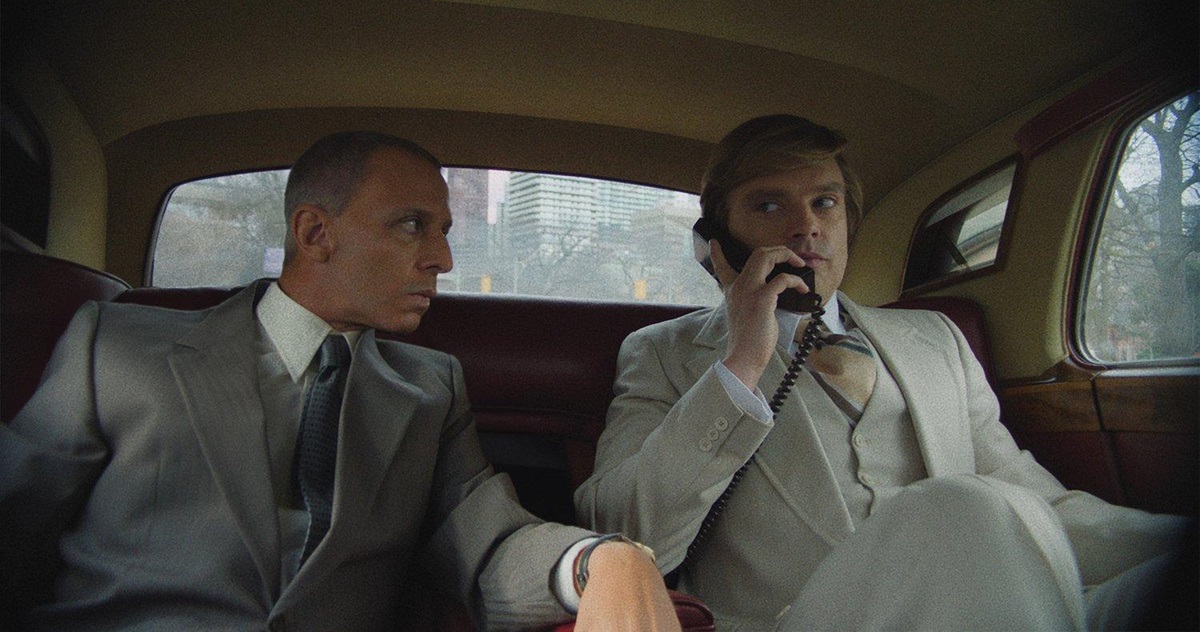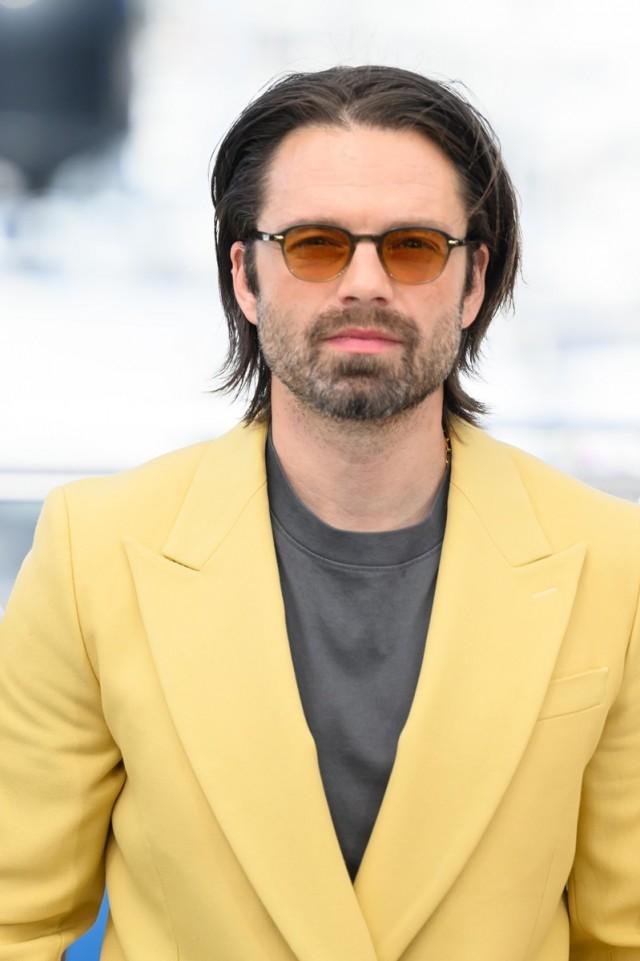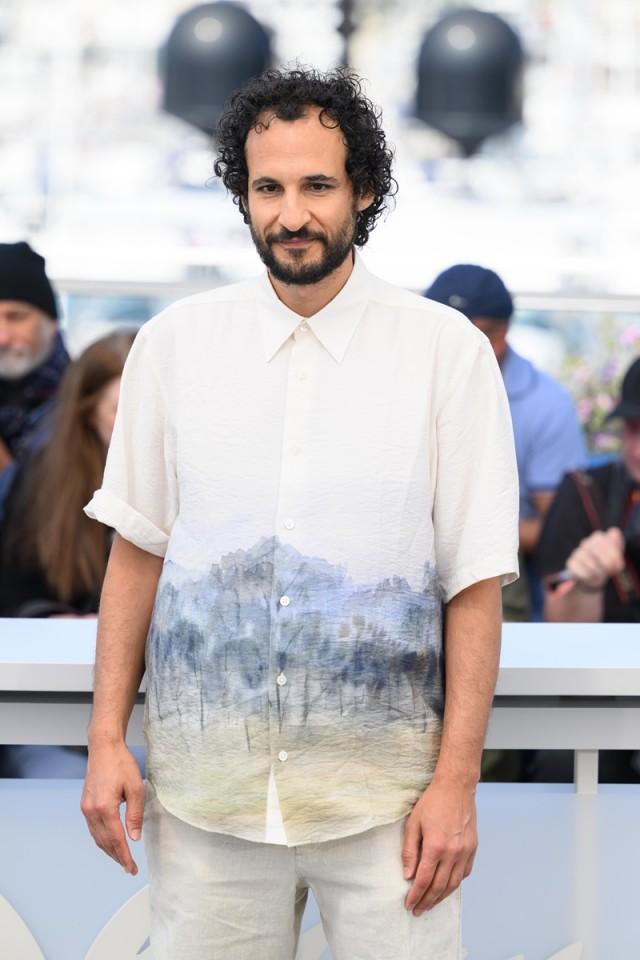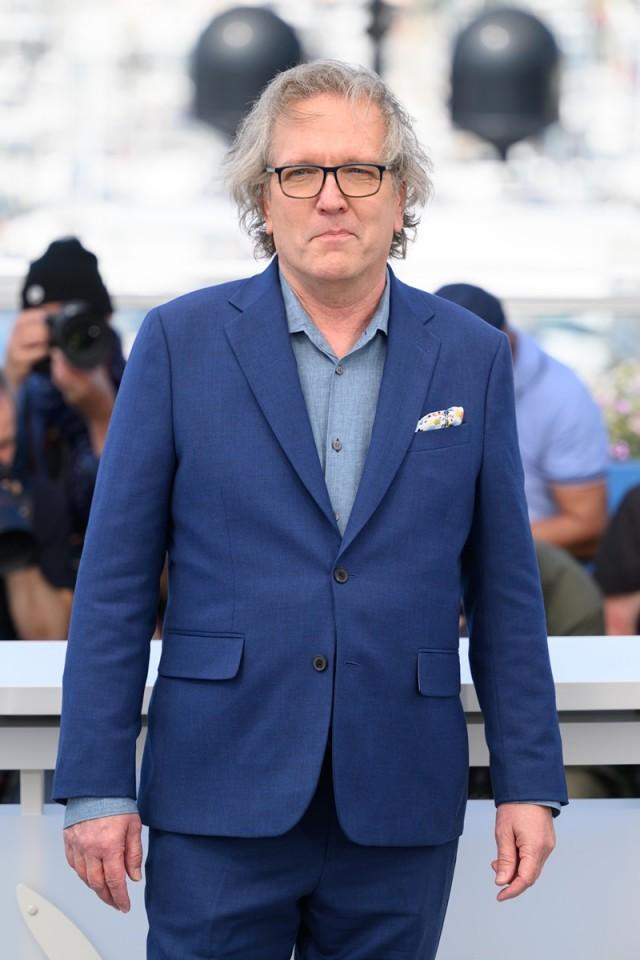Director Ali Abbasi, Sebastian Stan, cast talk about their controversial film 'The Apprentice'

Just as America is in the middle of the US presidential debates, the controversial biographical historical drama of Iranian-Danish filmmaker Ali Abbasi, "The Apprentice," which premiered at the 77th Cannes Film Festival, is still being talked about.
One of the popular films at the festival which earned a 10-minute standing ovation at its world premiere at La Croisette, the movie examines Donald Trump's career as a real estate businessman in New York in the 1970's and '80s and how he was influenced by Roy Cohn, a New York City prosecutor.
The film stars Sebastian Stan as Donald Trump, Jeremy Strong as Roy Cohn, Maria Bakalova as Ivana Trump and Martin Donovan as Fred Trump.
We met the filmmakers - director Ali Abbasi, scriptwriter Gabriel Sherman - and actors Stan, Bakalova and Donovan during the press conference at Cannes. Below are excerpts from that conversation.
Sebastian Stan (Donald Trump)

How did you prepare for the role? In relation to Trump, do you believe he has a code of honor?
It was sort of a 24/7 kind of immersion process of basically, living with him to some extent in my headphones and on my phone and YouTube and everywhere I was going and walking. Whatever I was doing, if I was in the bathroom, I would listen to him. So, I don't know how else to do it, except 100%. And that's what I tried to do in the limited time that we had. He is a human being like everybody else. So, I guess we all have certain codes and certain principles. It just depends on what they are. It's relative to everybody.
What did you learn about Trump while making this movie?
I think that's up to you guys, to see the movie. I think that's the hope we have is that people watch the film. Because I always feel like there is always something to learn. For me, as an actor, and sitting next to this brave artist (Abbasi) that I respect and I will follow wherever he goes with all these people who had enough balls to do this project, that's what we have to do. We have to kind of take on things that are risky and perhaps uncomfortable to talk about. But I think it's important that we do because, like Ali said last night, it's in our faces every day, and I think we need to have a perspective, or we need to just at least confront one another, hopefully in a peaceful way about what is happening and what we're seeing. And I think there's a lot to learn from the film.
How do you play Donald Trump without sounding like a Saturday Night Live character? How were you able to do it in a more humanistic way?
It started with the script and what was fascinating was reading the script. I was surprised when I first read it, in terms of the journey. And of course, there's an elephant in the room in your head about the person you think you know or you've seen, but once you get beyond that, just going back to the beginning and trying to trace things back to the military academy and sort of how he grew up, a lot of things seem to make sense.
Maria Bakalova (Ivana Trump)

It is your second Trump movie. What was the feeling of being Ivana in the film and you becoming the main East European in Hollywood? How do you feel?
Thank you so much for those kind words. I don't know how I'm feeling. I'm just feeling honored to be able to work and to work with great people, having legends like Ali, Sebastian, Martin and everybody on this table. It's just a privilege and an honor, and I just hope to do my best. I feel grateful to have a chance to portray a character like Ivana, because the more I got to know her, the more I fell in love with her. She has been a woman who has been way too much ahead of her time, and it's inspiring to see somebody pursuing their dreams, and ambitions, driven by the idea of just achieving it. I just got inspired. I honestly got inspired. I think she has been a legend.
How did you get this role?
The first time that I got the chance to read the script, I read it the same day, same hour. I saw Ali Abbasi attached; he's going to be directing. And I love his work. I love his work since Shelley, Border, Holy Spider, everything. He is such a visionary director. So, I was like, I will audition as many times as possible to get this role.
I remember I was shooting a movie in New York, and quickly asked my hair and makeup people to put a little bit of a makeup, a little bit of a hairstyle, and try to get in the shoes of this lady that I didn't really know a lot about. I took a few pictures, and I wasn't required to do something like a self-tape or anything at this point, but I just recorded something improvised, and I asked my manager, can you please send this? And she sent it.
Then I started the auditioning process, and it's been just wonderful to have a chance to collaborate while auditioning, because I remember Ali was guiding me and giving me different notes and directions and trying this and that, because it's important, especially playing a real human being. You want to play them with depth and dignity, of course, with good and bad sides, but you want to play the right person.
I was lucky enough to have a chance to be a part of this audition process. Because, as you know, it's still unfortunately rare to get a chance to even audition if you're coming from that region of the world, from Eastern Europe, and that's my dream, to just give more chances and opportunities for people like us, because I grew up not really recognizing myself on screen, and ever since this journey of mine going to, similarly like Ivana to the United States, the land of freedom and opportunity, happened, I just wish to shine light on people from my region of the world and try to bring chances and expand the collaboration between the eastern and the western side.
Gabriel Sherman (Scriptwriter, producer) and Ali Abbasi (Director, producer)

Roy Cohn is probably one of the most reprehensible human beings of the 20th century, arguably, and I just thought the movie does an amazing thing by actually making you feel sorry for him, empathy, when Trump basically screws him over. I was just wondering if you would sort of try to build to that emotional moment, whether that was a key strategy on your part.
Gabriel Sherman (GS): Thank you for the question. And yeah, to some extent, I think when I originally was having the idea for the script and doing the research that formed the foundation of the script, there were sort of several big hinge points in the film, and one definitely was when Donald kicks Roy's former lover Russell out of the hotel and sends him the bill which is a true anecdote.
I just felt that was so encapsulating of the way Donald is so one way. He talks about loyalty, but it's only a one-way street with him. And so I wanted the movie to build to one of those moments, because if you can feel sympathy and empathy for Roy, who did so much damage and has continued to do damage to democracy and truth and the world we live in, it says something about Donald as well. So that was the idea.
Ali Abbasi (AA): There was this very famous press conference with a compatriot of mine, Lars von Trier, here some years ago, and he was asked what he thought of … somehow, he ended up saying that he understands Adolf Hitler. And then it got worse, and it got worse. And you know, nobody could save him. But there is some truth to that in as so far that these are all human beings.
The most despicable monster you can think of is the most reprehensible person in history, also likes dogs, or fell for someone, or was nice to somebody at some point. And I think that for me, if there is an ideology for the movie, it's a humanist ideology. It is about taking these people who are icons, who are hated, loved, down-to-earth and sort of deconstructing that mythological image into earthly human beings.
With that comes understanding. With that comes sympathy. That doesn't necessarily mean you forgive everything they did, but it comes with understanding and sympathy. And I think if there is a cathartic mission for a movie, that would be it, I think.
Gabriel, can you talk about the general pressures that you faced behind the curtains? Now we have a strong political situation that brings a new election in the US, and this kind of film must create a great pressure on you.
GS: When I first came up with the idea for the film seven years ago, I heard so many voices in Hollywood from powerful people saying, oh, this movie will never be made. Or who wants to watch a movie about Donald Trump? And you know, it took a fearless producer and Amy who saw the potential of this idea and commissioned the script, and then a brave artist like Ali to come on to direct and develop the movie. And it takes those people who are kind of fearless and a little bit crazy to do the thing that everybody says you shouldn't be doing. I had a very powerful Hollywood executive say, 'Well, if Trump loses, you know, maybe we'll think about it.' I think if people talk about Hollywood being this, quote, liberal place, but it's actually making a film like this is very challenging, because Hollywood, in many ways, doesn't want to rock certain boats. And so, I just feel so lucky to get to write something and then find people brave enough to actually want to go do it.
Ali, you changed the format of photography from the 70s to the 80s and 90s. Does it have to do with all the characters changing?
AA: Oh, yeah. So last night, at 4:30 I was in my bed reading some of the reviews, and someone said, "Looks like a shitty TV movie." And I was like, you got it. It was the idea actually, because we were from the beginning very interested in embedding the archival footage from the time. And the concept of reality in movies is so complicated, yet often it's being always so flattened.
In maybe the past 20 years, we had a real debate about what's real, and what's not in a very extreme way with deep fake and whatnot. But the language of reality, as we know it, as we knew it, actually came from those archival footage, they came from the way they would shoot the newsreels in the '70s and the '80s when things got a bit more digital and mechanical, and sharp. And also, there is a story development that makes sense for us, because, like, in the first half of the movie, Donald is learning things, in a way, bright, or the trajectory upwards. This is the same inverted V shape that Paul Thomas Samson and Stanley Kubrick used as well. You know, it's this up and then down. And up is the 70s, and it's shot on 16 and it's grainy, it feels good, and then the down is on video, and it feels shitty, it should feel like that."
Ali, like many people in the world who are also pessimistic about the present and the future of the world like you, do you think you will be able one day, to also make a movie about Joe Biden?
AA: I am happy, actually, you asked that question because I can clarify something. This is really not a movie about Donald Trump. This is a movie about a system. It is a movie about a system and the way the system works and the way the system is built, and the way the power runs through the system. And then, Roy Cohn, he was an expert in using that system, utilizing that system, and he taught Donald Trump.
There are many other people, my life would not allow me to do biopic on every single one of them. But also, I think it's important to look at it this way, at least seeing from my side, from my Iranian side, or whatever you call it, the idea that there is a very sharp divide in the United States between conservatives and liberals. I think it's a fantasy. I think a lot of these people. They go to the same charity events. They go to the same galas. They want to go to the same schools. It's like, suffice to say, the guy who created MSNBC in 1993 created Fox News in 1996. That's the structure you're dealing with and I think Kurt Vonnegut said it very well. You know, there are two parties in the United States. There's the party of winners and the party of losers. So, I don't think we need to do a movie about every winner and every loser but there you have one.
Martin Donovan (Fred Trump) and Sebastian Stan (Donald Trump)

There's so much visual material of the real characters on YouTube and everywhere. Does that help, or is it limiting an actor in preparing?
Martin Donovan (MD): For me, it was a huge help, because Fred's not an iconic figure like Donald. And so I think most people wouldn't have known who he was, or what he looked like, or what his mannerisms were, but actually the production found a video of him accepting an award in New York City, and it's about a five-minute speech, and I just played that over and over again and picked up on his rhythms and went from there.
Sebastian Stan (SS): It was the Rona Barrett one-hour or something interview that I found online, and I watched that incessantly, but for me, I had to distance myself from a lot of the stuff from today and go back to… and that's we were lucky in the sense that there's a lot out there to see and watch and read. And a lot of interviews that he gave in that time, archives in The New York Times and The New York Magazine, and the first cover he got and all that. So, it was a huge help.
Martin, was this dramatic, silent approach your own choice to do your role?
MD: I worked, I watched and found the video because there's very little video of him being interviewed, but there was that one speech I found, so I worked on that. But honestly, I was not born into his class, but I know I was raised around people who think like him and we did a lot of improv, and it didn't make it into the film, but I did a lot of riffing, where I was channeling the people I knew growing up.
And I know the terminology they use. I know I was around racists. I know how those people think. And so, I was really channeling a lot of people I grew up with around and it actually was frighteningly easy to access. So, I see Fred as not a one off in terms of his views. I think his whole worldview is endemic to the white ruling class, basically around the world. That's how those people view the world.
—MGP, GMA Integrated News




